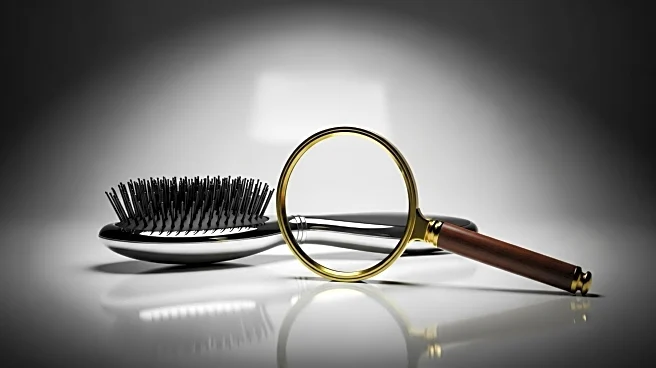What's Happening?
Mariska Hargitay, known for her role as Olivia Benson on 'Law & Order: SVU,' revealed that she was almost fired from the show during its third season due to a drastic hairstyle change. The incident occurred when Hargitay arrived on set with a pixie cut, which was deemed too extreme by the show's producers. Despite the hairstyle being considered 'easy, cool, and cop-like,' it was not well-received, and Hargitay herself was not fond of it. The series, which began in 1999, has been a staple in crime drama television, with Hargitay remaining a central figure throughout its run. The show is preparing for its 27th season, featuring reunions with former cast members and new developments in its storyline.
Why It's Important?
The incident highlights the pressures and expectations placed on actors in long-running television series, where even personal choices like hairstyles can impact their careers. Hargitay's continued presence on 'Law & Order: SVU' underscores her resilience and adaptability in the entertainment industry. The show's longevity and Hargitay's role have contributed significantly to cultural discussions around crime and justice, influencing public perceptions and awareness of sex-based crimes. Her involvement in the Joyful Heart Foundation further emphasizes the real-world impact of her character's role, providing support to victims of sexual abuse.
What's Next?
As 'Law & Order: SVU' enters its 27th season, viewers can expect reunions with past characters and new plot twists. The return of Dann Florek and Christopher Meloni promises to bring nostalgia and excitement to long-time fans. The series continues to evolve, with changes in cast dynamics and storylines that reflect current societal issues. Hargitay's ongoing commitment to her role and advocacy work suggests that she will remain a prominent figure in both television and social activism.
Beyond the Headlines
Hargitay's experience with the hairstyle incident reflects broader themes of identity and self-expression within the entertainment industry. It raises questions about the balance between personal choices and professional expectations, particularly for women in media. The show's influence on public discourse around crime and justice highlights the power of television in shaping societal attitudes and driving cultural change.










